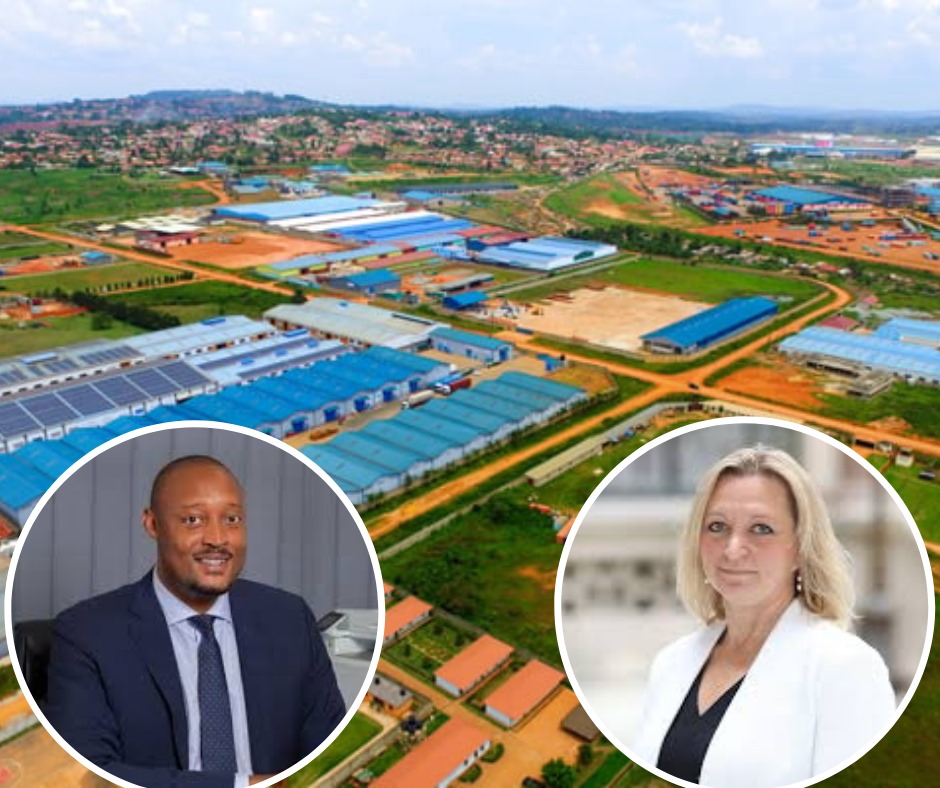In the quiet offices of the Uganda Investment Authority (UIA), tension has been brewing for months.
The Namanve Industrial Park project, a cornerstone of Uganda’s industrialization agenda, was meant to be a shining beacon of progress. Instead, it had become a battleground of clashing egos, rising costs, and conflicting directives.
At the center of the storm stands the Director General (DG) of UIA, a bureaucrat known for bold, sometimes controversial decisions. But this time, his boldness is igniting a firestorm.
The President’s Warning
Months earlier, as whispers of cost escalations and price variations circulated, His Excellency the President had issued a clear directive: Do not pay for the variation of price claims. It was a firm stance, aimed at protecting public funds and ensuring fiscal discipline. To many within UIA, the directive was not just guidance—it was an unshakable mandate.
In the project management office, engineers and financial experts combed through invoices and correspondence with LaganDott, the contractor responsible for delivering the project. The numbers didn’t add up, and objections began to surface. “This variation claim is questionable,” one senior manager remarked during a tense meeting. “It undermines our agreement and could drain our budget.”
The DG listened but remained noncommittal. Some saw this as a tactical move; others feared it was a sign of something brewing.
A Surprise Letter
Then came November 11, 2024—a date now etched in the minds of many at UIA. Without the usual preceding approvals, without consulting the project management team, and without regard for the President’s directive, the DG wrote to LaganDott.
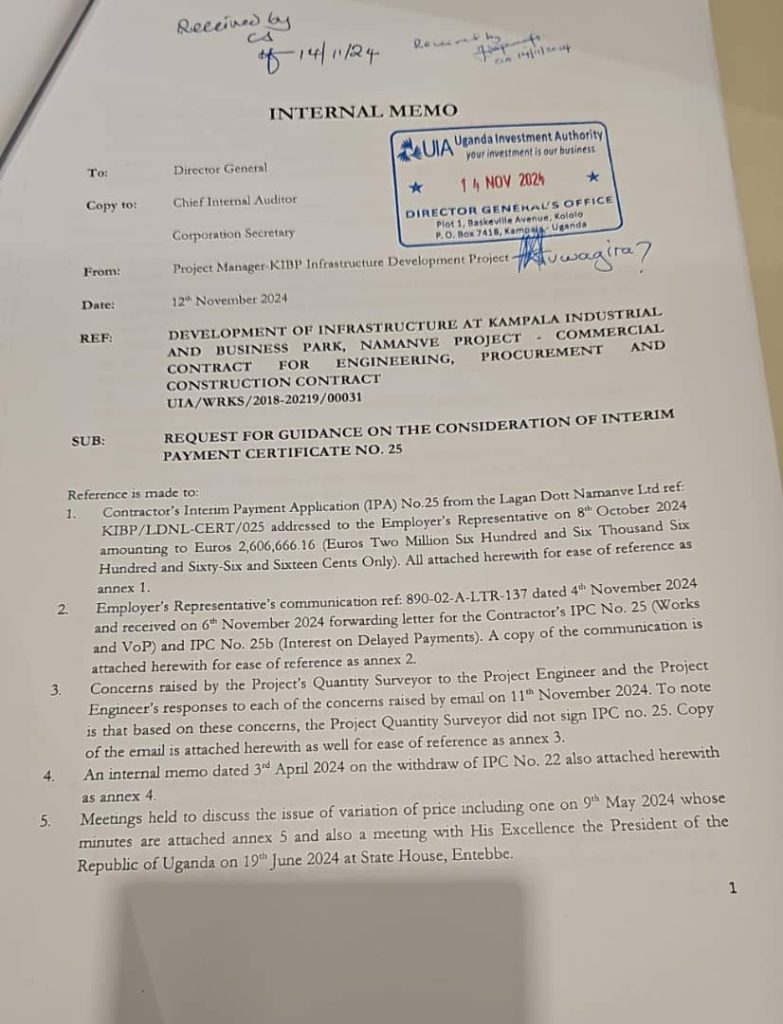
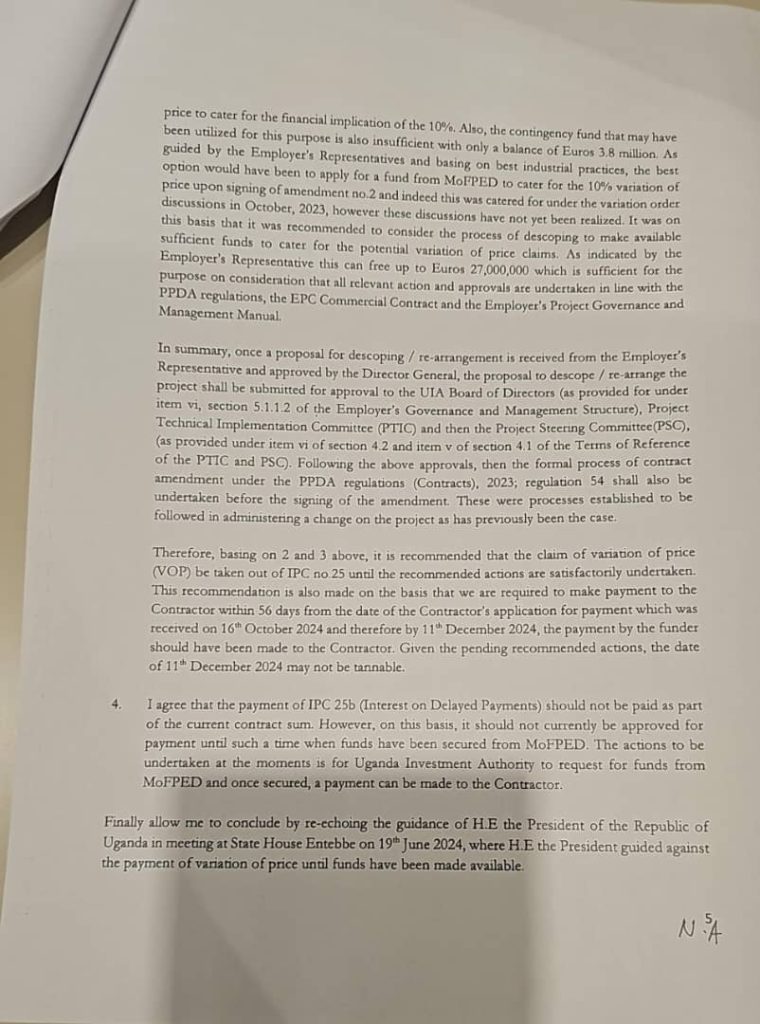
In the letter, the DG confirmed the recovery of advance payments, which, to the surprise of many, included the controversial variation of price.
The move sent shockwaves through the organization. Emails flew back and forth, some urgent, others angry. “How could this happen without our input?” asked a project manager, disbelief etched across his face. Another added, “This defies the President’s directive! What are we supposed to tell the auditors?”
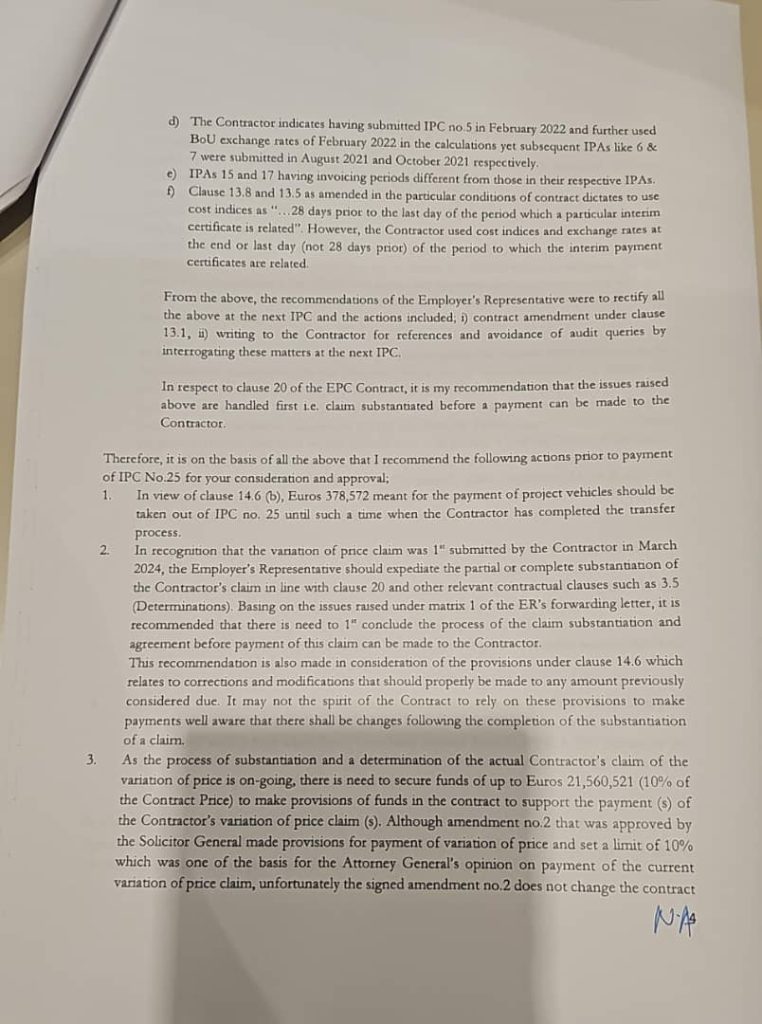
The letter, now a subject of intense debate, had set a precedent. Some saw it as a necessary evil to keep the project moving. Others saw it as a betrayal of trust and protocol.
The Irregular Meeting of November 21
Then came the highly irregular meeting on Thursday, November 21, 2024. Held between officials of UIA, the Ministry of Finance, Planning and Economic Development (MoFPED), and the British High Commission (BHC), this meeting marked a turning point in the unfolding drama.
The agenda: to discuss the Presidential directive and the contractor’s VOP claim. The outcome: an agreement to defy the directive under the guise of instructions purportedly given by the PM Excellence, the Owner’s Engineer. Present at the meeting were:
• Mr. Robert Mukiza, DG of UIA
• Mr. Arinaitwe Louis, an official from BHC
• Mr. Juvenal Muhumuza, also representing MoFPED – (Chairman)
• Eng. Patrick Batumbya, representing PM Excellence
• Mr. Prasad Reddy, representing Contractor LaganDoTT
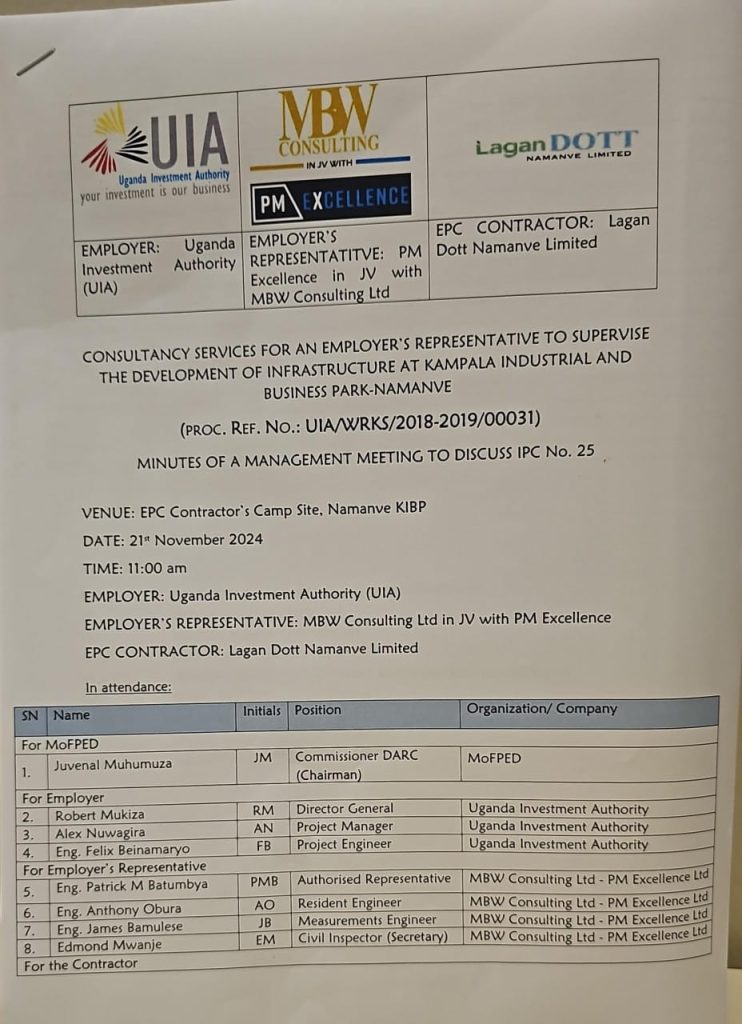
Despite the gravity of the matter, the meeting was irregular on several fronts:
- Unauthorized Representation:
Neither the officials from MoFPED nor the BHC had the authority to make binding commitments on behalf of their respective institutions.
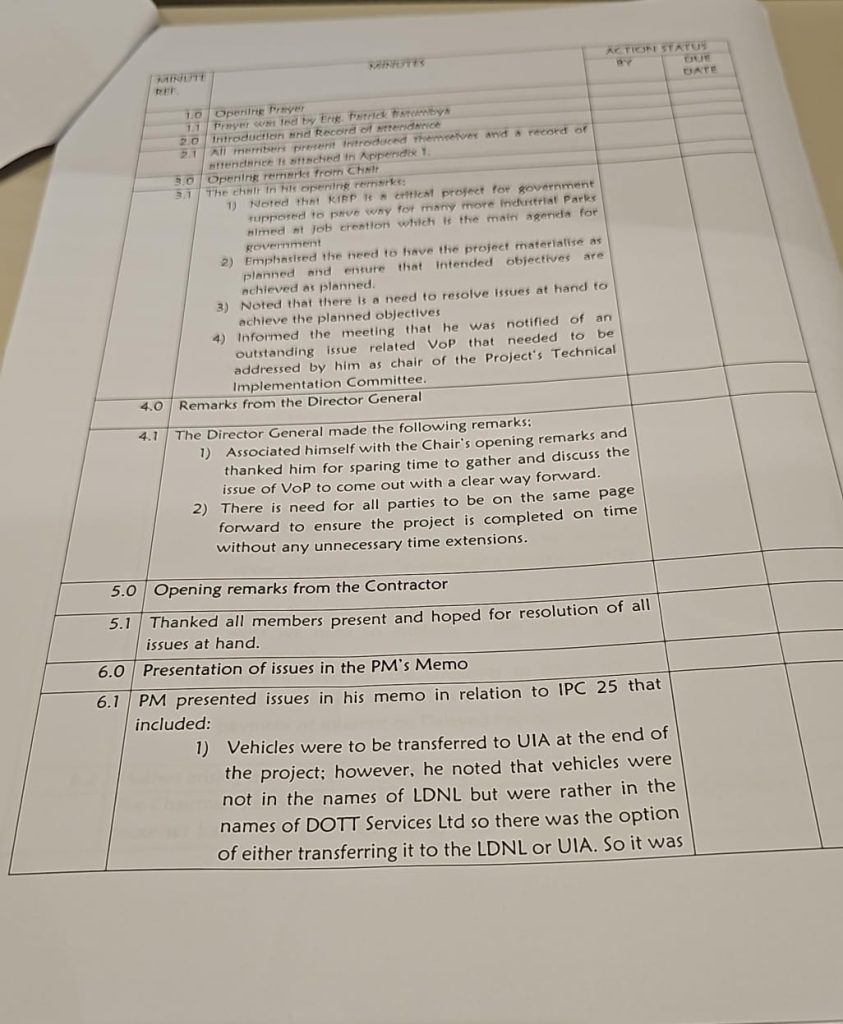
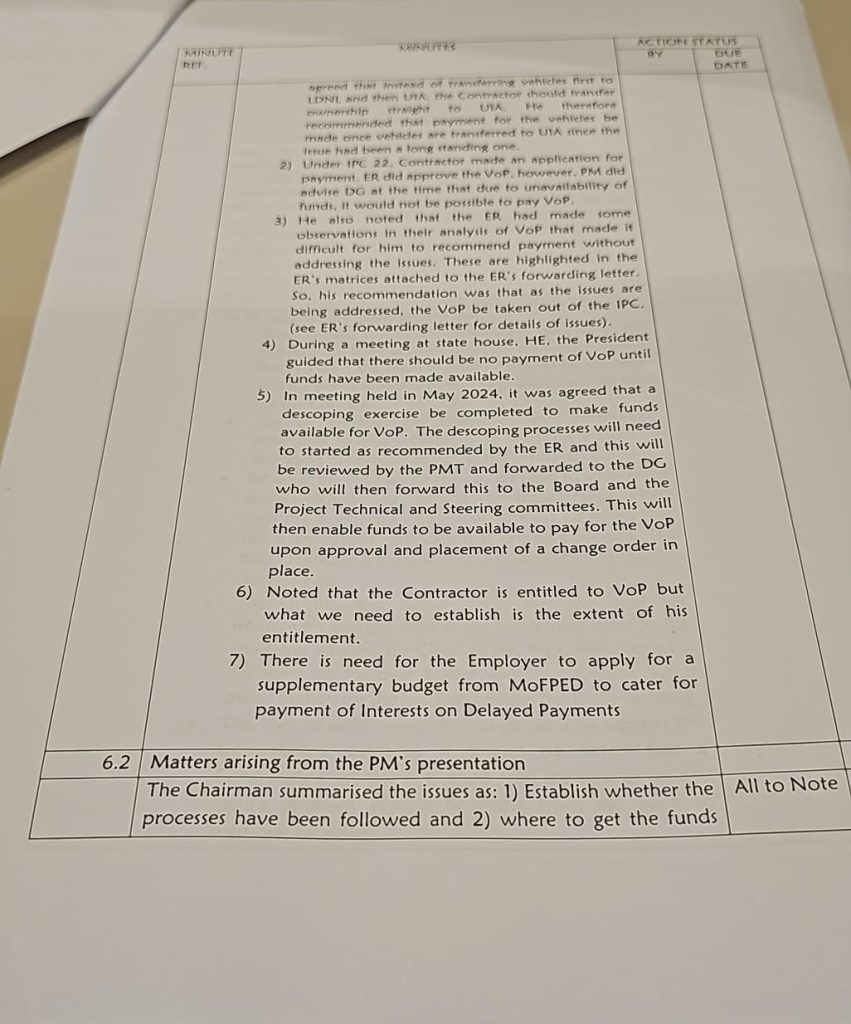
Their presence, while significant (with MoFPED chairing the meeting to dispute directive on VoP), did not carry the weight of formal endorsement, rendering any agreements reached questionable.
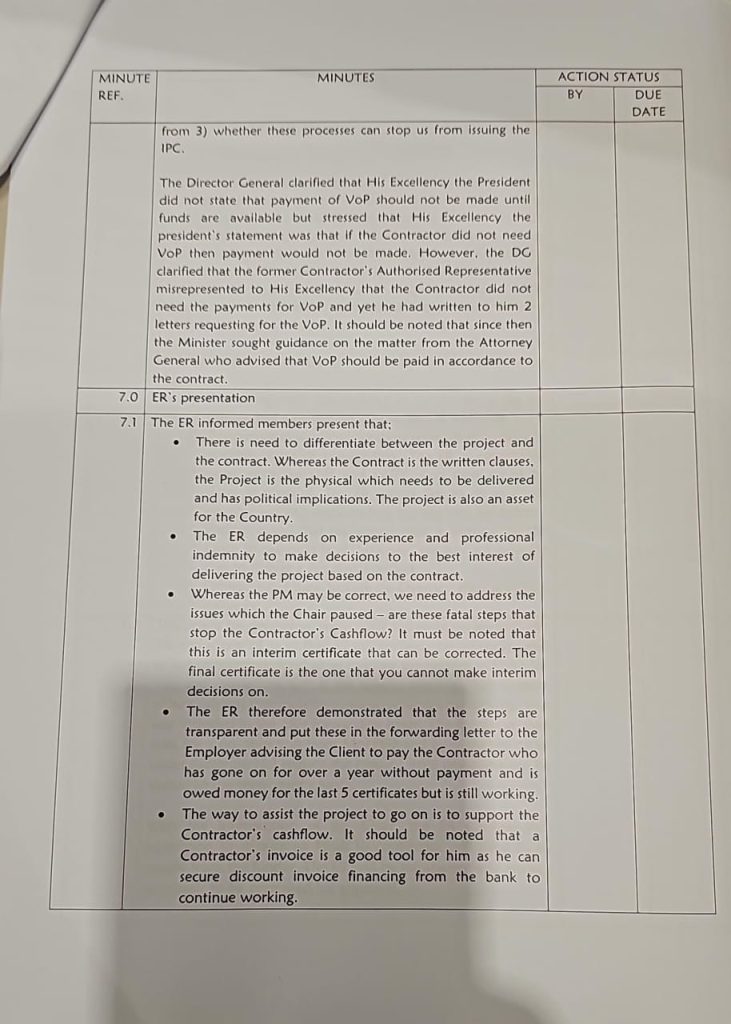
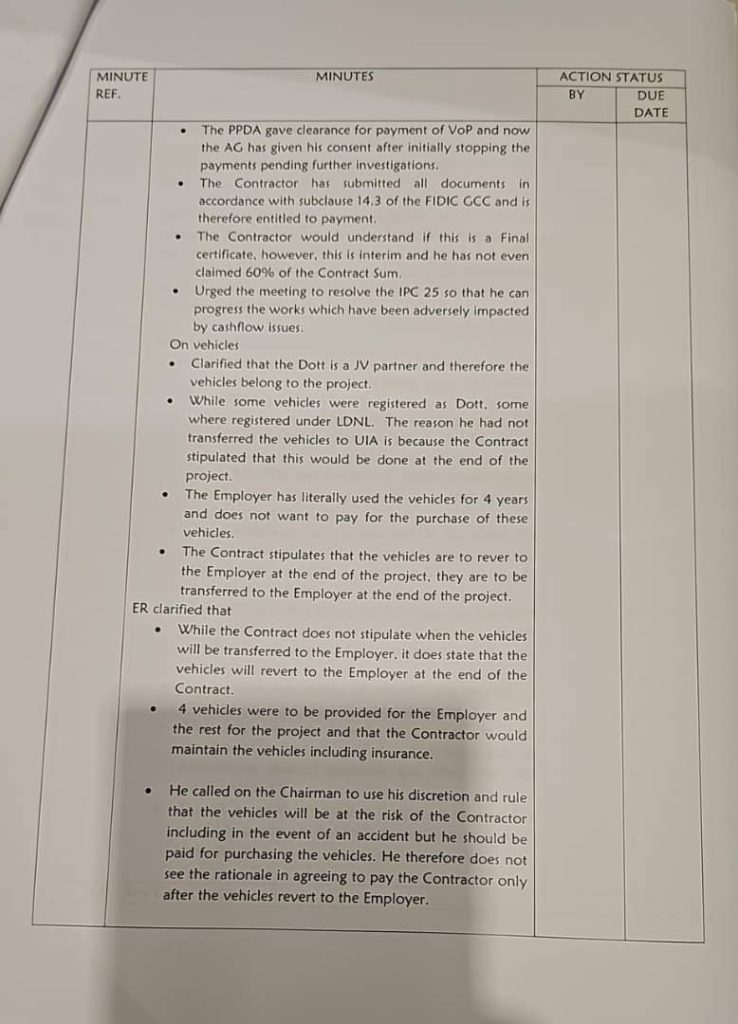
- Absence of Key Stakeholders:
The conspicuous absence of the line Minister in charge of UIA and the UIA Board left a leadership vacuum at a critical juncture. Their silence on such a pivotal matter raised eyebrows, with many questioning whether it signaled tacit approval or intentional avoidance.
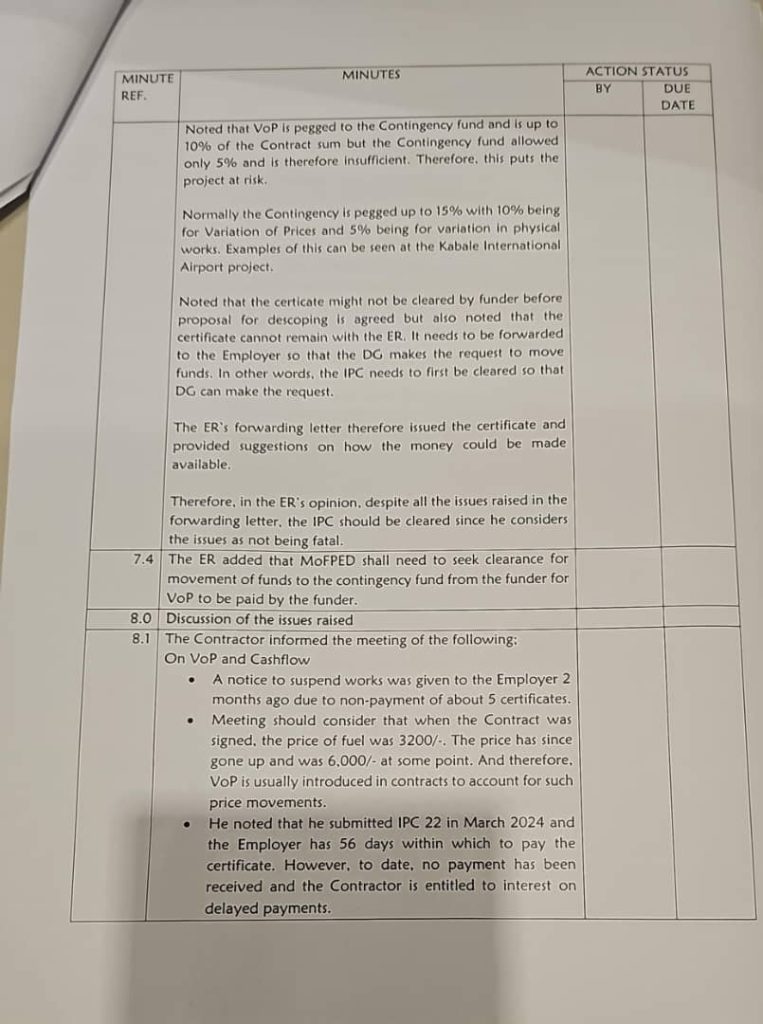
- Contradiction of Established Protocols:
By agreeing to override the President’s directive, the meeting participants not only acted beyond their mandate but also undermined the principles of accountability and hierarchy that govern public institutions.
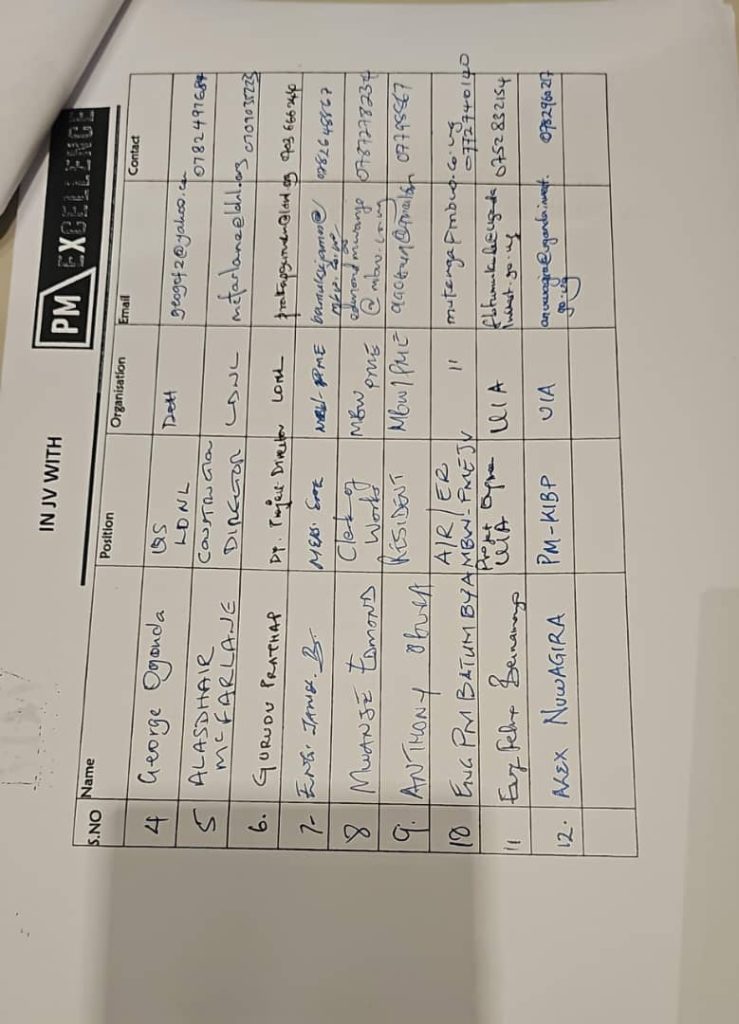
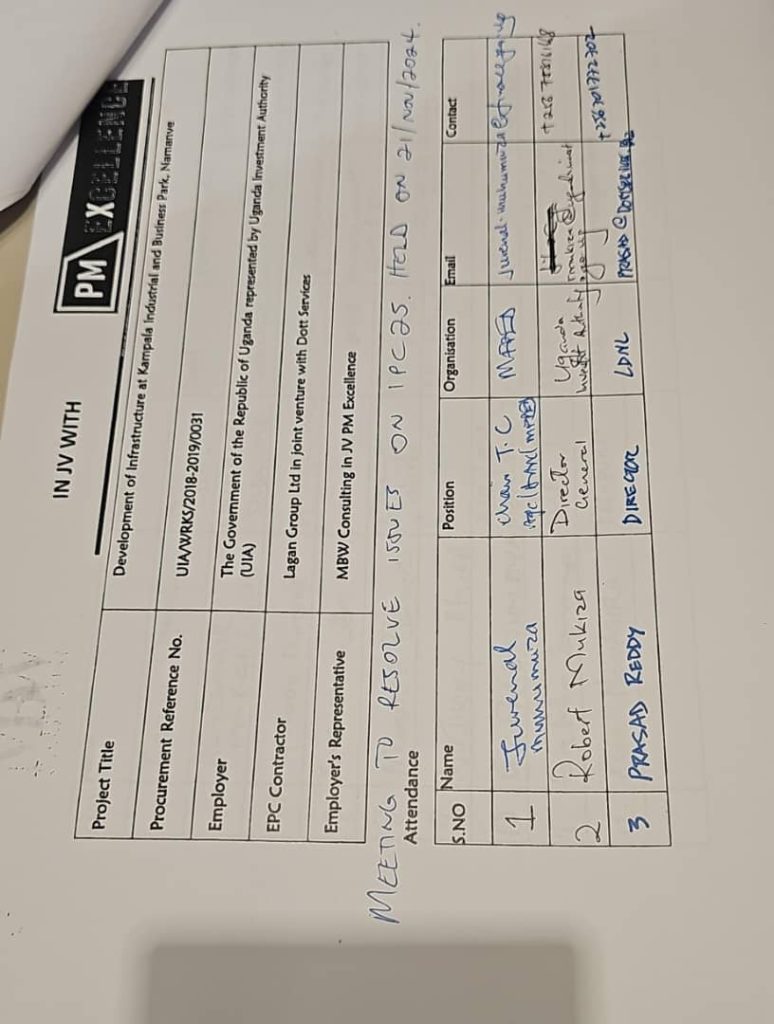
The DG’s Missive
The saga surrounding the Namanve Industrial Park project took another dramatic turn on November 26, 2024, as the Director General (DG) of the Uganda Investment Authority (UIA) lashed out against what he termed a campaign of “fake news.” In a strongly worded statement, the DG accused detractors of engaging in character assassination and attempting to paint him as corrupt, naming names in a bid to clear his image. However, this latest defense has only intensified scrutiny, as irrefutable documentary evidence of misdeeds at UIA has come to light, raising questions about oversight and accountability.
In his statement, the DG categorically denied allegations of corruption and impropriety in handling the contentious Variation of Price (VOP) claims tied to the Namanve Industrial Park project. Referring to ongoing public discourse as “a smear campaign,” he accused unnamed individuals and groups of spreading baseless rumors to tarnish his reputation. “I have worked tirelessly for the good of this institution,” the DG wrote, “and I will not sit back while my name is dragged through the mud by those with hidden agendas.”
Despite the DG’s protestations, the release of new documentary evidence has cast a shadow over the Authority’s operations, painting a picture of systemic lapses that go beyond individual culpability.
The Oversight Deficit
The latest developments have brought the role of oversight bodies under sharp scrutiny. These bodies, tasked with ensuring accountability in public institutions, have so far failed to pick up on clear leads pointing to systemic governance issues. This failure has been described by critics as indicative of either negligence or complicity.
“There are only two plausible explanations for this oversight failure,” remarked a governance expert. “Either the responsible bodies are grossly incompetent, or there is deliberate collusion to shield wrongdoers. Neither scenario is acceptable.”
The Contractor’s Smile
Meanwhile, at LaganDott’s offices, there was a sense of quiet satisfaction. The payment they had long fought for was finally in motion. Yet even they knew the circumstances were unusual.
“It’s rare to see this kind of action without approvals,” one of their executives mused. “But it works for us—at least for now.”
What’s Next?
The events surrounding the Namanve Industrial Park project highlight deep flaws in governance and decision-making within Uganda’s public sector. From the unilateral actions of the DG to the irregular November 21 meeting, the saga is a cautionary tale of what happens when competence and accountability is sacrificed on the altar of lack of oversight.
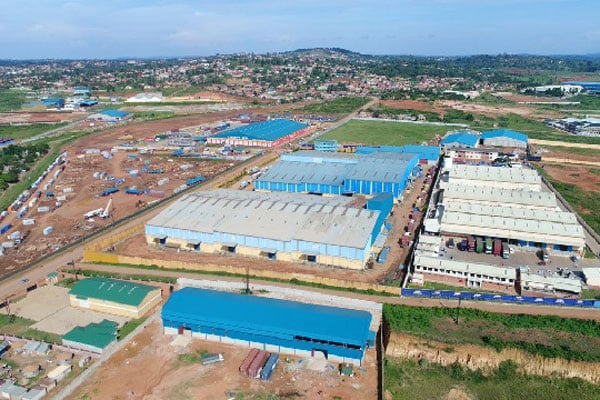
As the dust settles, one question remains: Who will be held accountable for defying a Presidential directive, undermining institutional protocols, and jeopardizing the integrity of one of Uganda’s most significant industrial projects? The answer, it seems, lies in the hands of those willing to confront the truth.
As the story of the DG’s decision unfolds, questions abound. Who should hold the reins in critical project decisions? How should competing directives be managed? And most importantly, how can public funds be safeguarded in high-stakes projects?
For now, the Namanve Industrial Park project moves forward, but its legacy is at risk. Will it be remembered as a triumph of industrial progress or a cautionary tale of mismanagement?
Only time—and perhaps the findings of that independent audit—will tell


